The beginning of the Robbie Henshaw story was the ending of Brian O’Driscoll’s. The old warrior had just played his last international in a green shirt and was standing on his own when the floodlights failed in the Stade de France. This was March 2014. An emergency spotlight came on, focusing its lens right on top of O’Driscoll’s face as the Six Nations trophy was about to be presented.
So, there he was, centre-stage one last time. And next to him, just before the medal presentation was about to commence, was a man wearing No24 on his back. In more ways than one, the time had come for Robbie Henshaw to step out of the shadows.
No one can say he hasn’t. Winner of two Grand Slams, a Six Nations title, European Cup, tourist on two Lions tours, scorer of the decisive try when Ireland finally broke their duck against the All Blacks in 2016, Henshaw has made his mark.
O’Driscoll played a big part in that, tutoring him through Henshaw’s early years with Ireland, answering a call when it was made. From O’Driscoll he learned about the game, firstly, but also about himself.
He tells this story about when he was brought into the Connacht set-up at a young age, a year after he had left school, conscious of his timidity off the park. “I was never one of those kids who put his hand up in class to answer a question,” he said a couple of years back. “But once you cross the white line, you have to be ruthless on the pitch. You don’t hold back.”
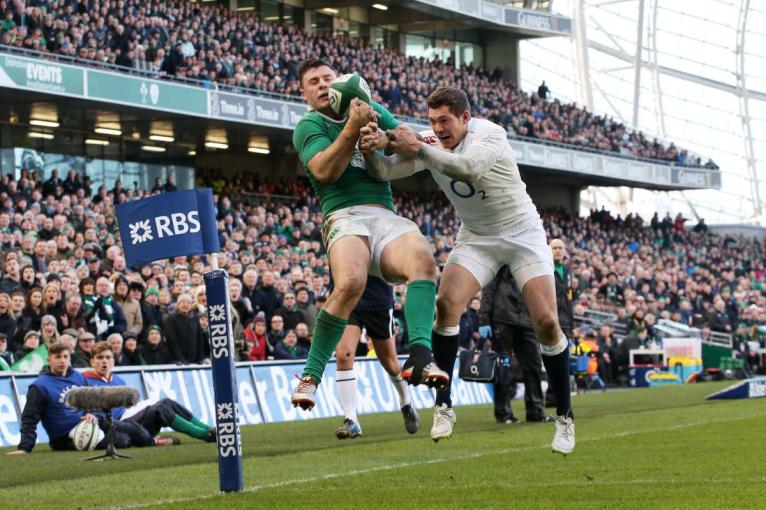
Connacht was good to him but when Leinster called in 2016, he was ready to listen. So, he moved east, speaking again about ‘struggling to find my voice’ in a different setting. It was a similar scenario in New Zealand in 2017, when he became a Lion.
A pattern was developing: Connacht, Ireland, Leinster, the Lions. New environments, those classroom habits resurfacing. As a teenager at Connacht, he listened in on the adult conversations and didn’t really know what he was meant to say. By the time he was with the Lions, in 2017, he was entering the unknown, surrounded by players he had admired from a distance. And each time he retreated into his shell.
When lockdown came in 2020, he had time on his hands. That was when he returned home to Athlone, when his school coach opened the door to the gym and allowed him to borrow a few weights. The injuries healed, the mind cleared.
Slowly, gradually, he came out of it. Stuart Lancaster helped, taking him aside a year after they were together at Leinster, advising him to find his voice because his opinion was valued. If that brought confidence, then so did other things. The 2015 and 2019 World Cups were interrupted by injuries, the 2017 Lions tour cut short by one.
But when lockdown came in 2020, he – like the rest of the world – had time on his hands. That was when he returned home to Athlone, when his school coach opened the door to the gym and allowed him to borrow a few weights. The injuries healed, the mind cleared.
Old videos of some of his better games were taken off the shelf and dusted down. He watched himself and from that moment on decided to back myself. “I stopped worrying about the outcome, the what-ifs. I decided, ‘from now on, I’m just going to have a go’. There was a definite shift in my mindset.”
A conversation with Leinster’s departing player, Fergus McFadden, was also transformative. “What age are you now?” McFadden asked him.
Henshaw was 27 when the question was posed.
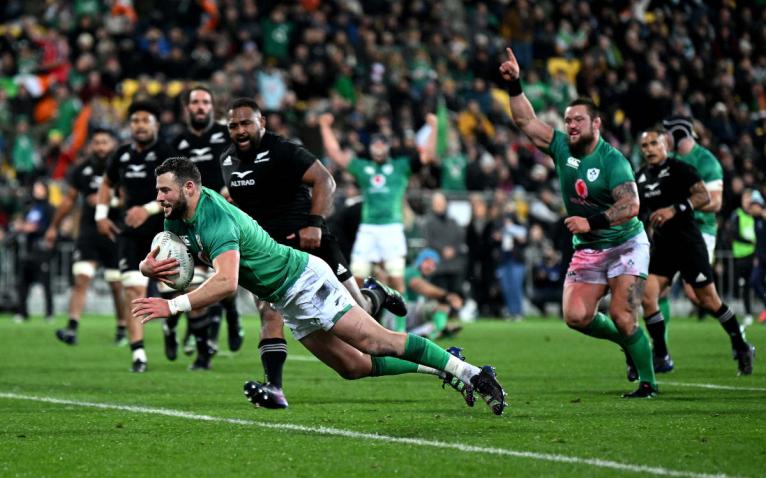
Something clicked. He knew he had five, six years left at the highest level. It was time to make the most of this gift he had been given. It’s no surprise the best years of his career have come since then.
Under Joe Schmidt, Ireland’s players learned by rote, their game-plan so strictly choreographed. Take the 2017 Six Nations as an example: Henshaw made 62 carries in five games, gaining 99 metres.
A fortnight after that tournament ended, he carried for 102 metres in a single afternoon for Leinster against Wasps in the Champions Cup. Under Leo Cullen and Lancaster’s Leinster and then Andy Farrell’s Ireland, he has been given freedom to make his own decisions, a rugby glasnost after years of strict game-plans.
To understand the Robbie Henshaw story, you need to know who he is and where is from.
It is why he is here today, in France, preparing for a third World Cup. There’s a sense of adventure about all this and it takes him back to his five-year-old self, to another journey, this one by train.
To understand the Robbie Henshaw story, you need to know who he is and where is from.
Athlone, his hometown, is not considered a rugby hotbed. But Athlone was home to the Buccaneers, the team his uncle Davy played for.
To cut to the chase, in the 1990s, the Buccs became Henshaw’s boyhood team, and Irish sport’s fairytale story. They were an amalgamation of two small clubs, Athlone and Ballinasloe, and step by step they made their way up through the four divisions of the All-Ireland League.
They started winning games and then they won something even more special, the hearts and minds of a community. Success had been a stranger in the two towns, a decade-and-a-half passing since Athlone Town were League of Ireland champions in football. Buccs filled the vacuum.
A supporters club, The Pirates, was formed, marquees built for pre-match functions, 258 people dining with them in a tent before one game in Ballinasloe, when a few years earlier, they couldn’t get that many fans paying to see them play. Suddenly, sold-out signs became a thing.
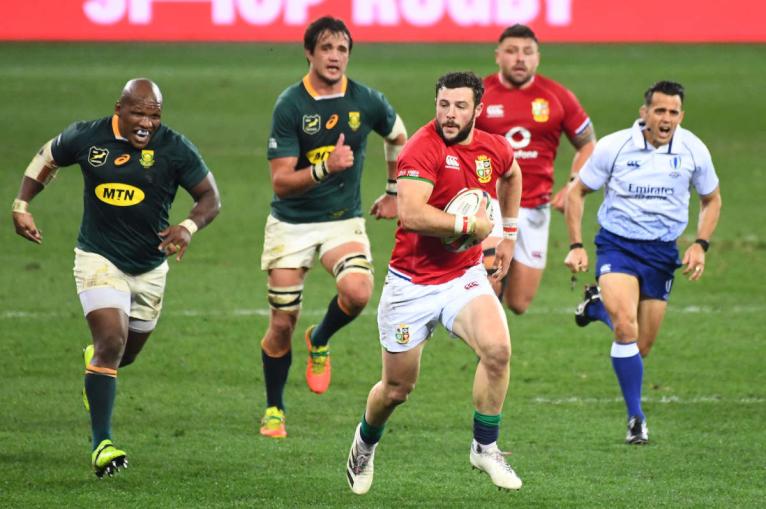
The future Ireland coach, Eddie O’Sullivan, took charge and constructed a sensible game-plan.
The weather Gods also played their part. The sun refused to shine on the days the slicker passing sides, St Mary’s, Terenure or Lansdowne, visited. They’d walk the pitch beforehand and ask the home captain, ‘did you hose this’?”
They didn’t need to. The surface, let’s say, was naturally moist.
His father bought him an All Blacks ball for Christmas. At half-time, Henshaw sneaked onto the Buccs’ pitch to kick it around. At full-time, his uncle Davy pulled him into the dressing room, where the post-match ritual was a rendition of The Fields of Athenry.
“Our little ground wasn’t a lap of luxury,” says Noel Mannion, a former Ireland international who had returned to finish out his career at his home-town club.
It didn’t have to be. People went to those games because this was a team they could connect with, a side populated with locals, winning against the odds.
“What I loved about those matches,” says O’Sullivan, “is the role the crowd played in it. We kept coming out the right side in one-score games. That’s why those years are so memorable. It was a real rugby story, the little guys going up against the establishment and winning.”
And into this environment came a little boy called Robbie Henshaw.
His father bought him an All Blacks ball for Christmas. At half-time, Henshaw sneaked onto the Buccs’ pitch to kick it around. At full-time, his uncle Davy, the team’s prop, pulled him into the dressing room, where the post-match ritual was a rendition of The Fields of Athenry, the song that latterly became Munster and then Irish rugby’s anthem. This dressing room, though, was where it was first sung.
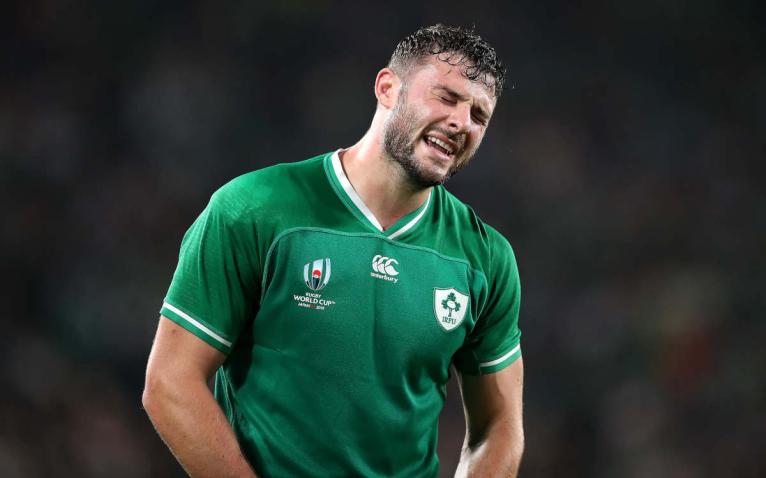
Now unless you are from a provincial town, you’ll never quite understand why a local sports team represents so much more than a badge.
For the people of Athlone and Ballinasloe, Buccs was escapism for those worn out by the drudgery of the nine-to-five; it was affirmation for those who’d never left their hometowns, justification for those who’d come back to them. The pre-match banquets were fun, the matches intense and the craic in the clubhouse afterwards, where the musical Henshaw family played their instruments, unforgettable.
So were the results. Despite being tipped for relegation, the Buccs got to the play-offs in their first season in the top-flight, a kid called Robbie Henshaw there every step of the way.
“I was in awe of every one of them,” he’d later tell me. “Rugby was always steeped in the family. Dad passed on the birthright. The memories of the packed out crowds, three or four thousand per game, for a small kid, that was massive.”
For a shy person, rugby was his means of self-expression. For a country boy, this was his way of putting a provincial town back on the sporting map.
Ireland was a different story. Uncle Davy never played for them but one of his father’s best friends did. Leo Galvin is his sister’s godfather who featured in an Ireland/Argentina game in the mid ’70s.
It was Leo who sourced the tickets for Henshaw’s first ever trip to Lansdowne Road in 2006 for the Pacific Islands’ visit. “He also got us tickets to the All Blacks that year, plus the Croke Park heartbreak game against France in ’07. When Keith Wood played for Ireland, dad and Leo were always saying, your uncle played with him.
“Those long, saggy, green jerseys with Irish Permanent on them; I loved them. Right from a young age, I really loved the game.”
He still does.
For a shy person, rugby was his means of self-expression. For a country boy, this was his way of putting a provincial town back on the sporting map. As a kid, Henshaw was an exceptional Gaelic footballer, hence his handling skills, yet he’d have been painfully aware of his county’s history of underachievement.
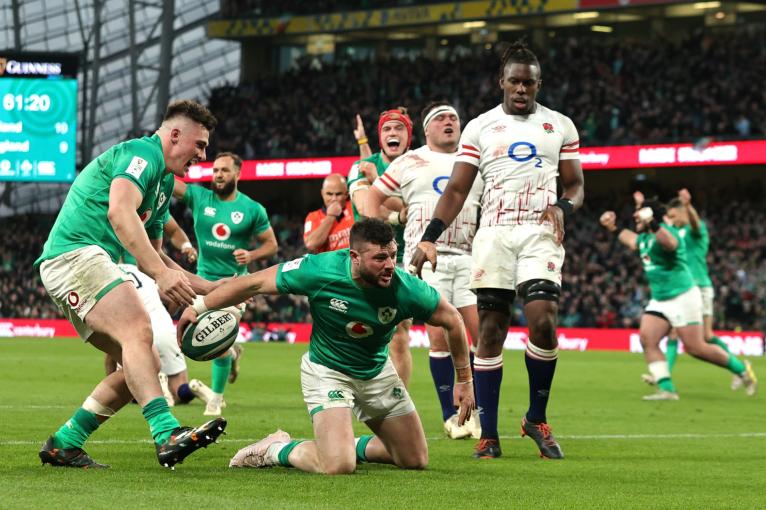
A neighbour, Dessie Dolan, was Westmeath’s star player when they won the county’s solitary Leinster title in 2004, and later a mentor to an emerging Henshaw, teaching him about staying focused and avoiding distractions.
Now a man of 30, he is playing in his third, and probably final, World Cup, aware that Ireland have never made it beyond the quarter-finals, aware they are in a hellish pool, grouped with the defending champions and the underrated but talented Scots.
Despite being No 1 in the world, few beyond the nation’s boundaries expect them to stand atop the podium on October 28. “It’s exciting,” he said last month, “we know we have a huge travelling support coming to cheer us on. We want to put a smile on people’s faces.”
From Dolan, from his uncle, he has seen that happen, sport transforming people’s moods. The prize now is bigger, of course. But the concept hasn’t changed. Robbie Henshaw grew up watching Davids slay Goliaths. In France they will meet Goliath’s big brothers on a weekly basis and one by one, they’ll fling stones at their heads, too. And one by one, they dream of making them all fall over.



One of Irelands best, his defence and ability to go forward will be crucial in world cup.
Well the part about Connacht was well avoided and skipped by wasn't it!! No mention of move to Leinster if you want your Irish ambitions because back then Connacht were not , er, shall we say allowed much !! Then his injury profile when some genius decided he was a centre. Bulk him up make him crash into tackles forget his speed agility and handling skills. A absolute authority on rugby said on live TV Robbie is a fullback/ winger NOT a centre but again this authority was from Connacht so , you know !! So Gary nice piece of rosy cosy writing !!
Great article. Henshaw is an underrated player.